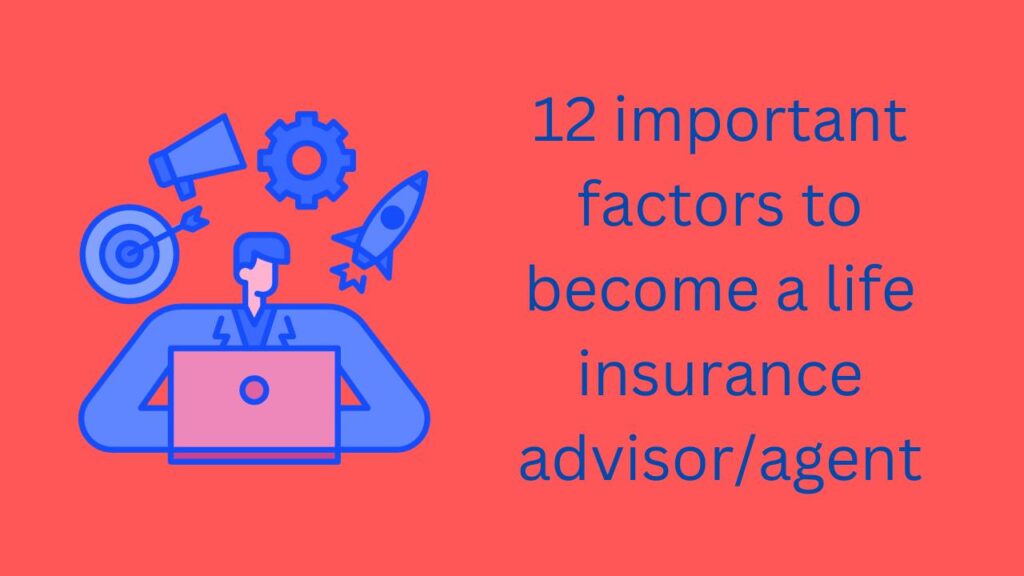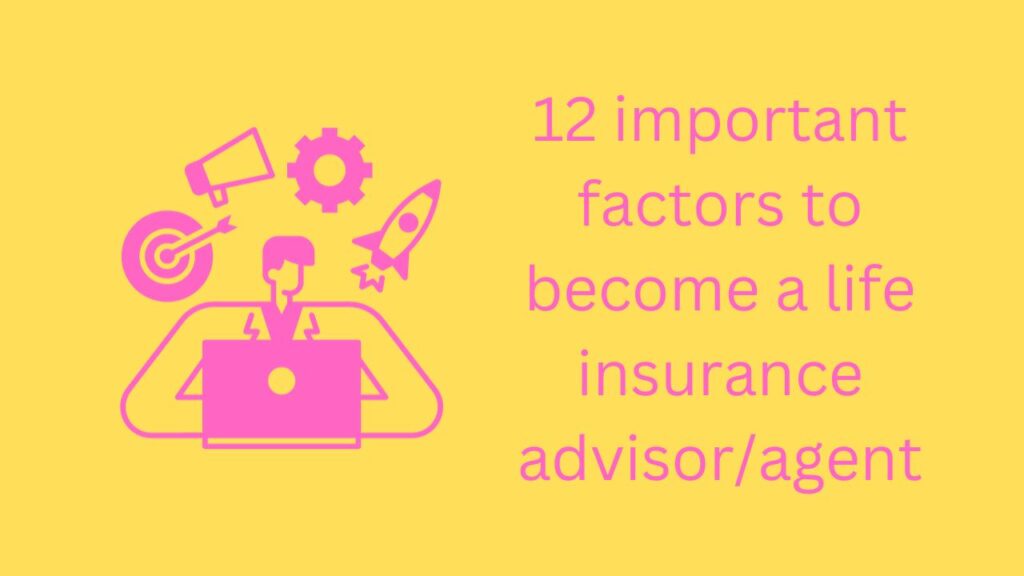
Life Insurance Introduction:
Table of Contents
Toggleinsurance is a contract which is a written agreement between the insurer and the insured. In which the insured person pays a specified premium to the insurer. And for the protection of the insured person and his family, the insurer pays the full sum insured to his family in case the insured person is no more.Becoming an Life insurance company agent involves several steps, including meeting specific requirements and obtaining the necessary licences. Here is a general guide on how to become an insurance agent:
1: Life Insurance Educational Requirements:
Some companies may give preference to candidates with a college degree, especially for more complex insurance products or roles. IRDA conducts an exam in which minimum marks have to be passed to qualify for the insurance company for which you wish to be licensed. o The company gives you an ID Card.
2:Select type of Insurance:
Decide what type of insurance you want to sell. Insurance agents may specialise in different types of insurance, such as life, health, auto, home or commercial insurance. You will need to specify which type of insurance you work with.
3:Research Licensing Requirements:
Insurance agents are required to be licensed in the state where they plan to sell insurance.
Each state has its own licensing requirements, which may include pre-licensing courses and passing a state licensing exam.
Contact your state’s Life insurance department for specific requirements and procedures.
4:Pre-Licensing Education:
Enrol in a pre-licensing education program approved by your state’s department of Life insurance.
These programs typically cover insurance principles, state regulations, and product knowledge.
5:Pass the Licensing Exam:
After completing the required pre-licensing education, you must pass a state licensing exam.
Study thoroughly for the exam, as it covers essential insurance concepts and state-specific regulations. The exam paper can be quite difficult.
6:Apply for Licence:
Once you pass the exam, submit an application for an insurance agent licence to your state’s Life insurance department. Pay any required fees.
7:Background Check and Fingerprinting:
Some states may require a background check and fingerprinting as part of the licensing process.
8:Choose an insurance company:
Decide which insurance company or companies you want to represent.
Contact Life insurance companies to inquire about their agent recruitment process. All companies have their own HRD. By contacting there and getting the company’s ID card, you can start working as a consultant/agent.
9:Complete Company-Specific Training
The insurance company you choose may require you to undergo additional training on their products and sales techniques.
10:Get appointments with insurance carriers:
After passing your licensing exam and completing the required training, you will need to get hired with the Life insurance carriers you want to sell. This includes completing paperwork and meeting company-specific requirements.
11:Start Selling Life Insurance:
Once you’re licensed and appointed, you can start selling Life insurance policies.
Build your customer base, market your services and develop your sales skills.
Maintain your licence:
Keep your insurance agent licence current by completing ongoing continuing education requirements and complying with state regulations.
12:Consider Professional Certifications:
Some insurance agents choose to obtain professional certifications such as Chartered Property Casualty Underwriter (CPCU) or Certified Life Insurance Counselor (CIC) to enhance their knowledge and credibility.
conclusion :
The insurance industry is constantly evolving, so it is essential to stay informed about changes in laws, regulations, and insurance products.
Remember that specific requirements and procedures may vary by state and insurance company, so it’s important to research and follow the guidelines related to your location and chosen area of insurance. Additionally, networking and building relationships within the industry can be valuable to your career as an insurance agent.

